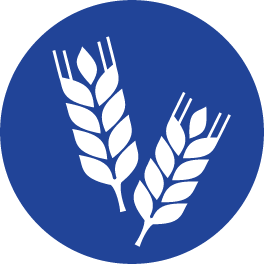
Pregnancy, lactation and nutrition
The right nutrition during pregnancy and the subsequent lactation stage can make a difference to the health and development of the baby not only during infancy but even later in life.
Importance of breastfeeding for mother
Apart from the emotional connect between mother and child; breastfeeding also helps the uterus regain normal size from enlargement during pregnancy.1
Why does the mother require additional nutrition during pregnancy and lactation?
During pregnancy and lactation, the nutritional needs of a woman increases as she has to meet demands for:1
If the mother is undernourished it can lead to a number of complications like increased risk of infection in both the mother and the baby, anaemia (low haemoglobin levels), weakness, and low birth weight.2
Hence, it is important for the mother to get proper nutrition throughout pregnancy and lactation either through diet or supplements.
Nutritional requirement during pregnancy and lactation

Carbohydrates:
A woman gains about 12-14kg weight during pregnancy. Additional calories are required during pregnancy for foetal growth and development.4 During lactation, the calorie requirement increases even more to produce an adequate amount of milk.This increased calorie requirement can be met through carbohydrates present in a variety of fruits, vegetables, and various types of grains and cereals.1

Proteins:
Proteins form the basic building blocks of the body. Hence, during pregnancy, almost 50% more protein is required for the development of the foetus.4,5 During lactation, the mother requires additional amounts of protein for the production milk.4 A pregnant or lactating woman can get protein from fish, poultry, lean red meat, calories in an egg, dairy products, nuts, dried beans, peas, lentils, and soy.1

Fats:
Fats are important for the formation of hormones and for proper brain development of the foetus. Essential fatty acids like omega-6 and omega-3 are important for the development of the brain and eyes.5 Omega-6 can be obtained from leafy vegetables, seeds, nuts, grains, and vegetable oils and omega-3 from seafood, walnuts, flax seeds, soybeans, and canola oil.6

Dietary fiber:
Constipation can be a problem during pregnancy due to the pressure of the developing foetus on the mother’s intestine. Eating food rich in dietary fiber can help regularize bowel movements. Some examples of fiber-rich foods are sapodilla, guava, apple, and pear (eaten with their skins), whole wheat bread, and green leafy vegetables.1

Vitamins:
Here is a list of some vitamins that are important during pregnancy and lactation:
| Did you know? Vitamin B6 given during pregnancy can reduce severe nausea and vomiting.1 |

Minerals:
Calcium and iron are the most important minerals during pregnancy and lactation. Iron is required for the formation of RBCs and is found in green leafy vegetables and meat.4 Calcium is required for the formation of bones and teeth of the foetus, production of milk during lactation, and to prevent bone diseases like osteoporosis in the mother.1,4 Dairy products like curd and milk, legumes, and leafy vegetables are sources of calcium.1
|
Tips for mother:
|
How can a nutritional supplement help?
During pregnancy and lactation, the gynaecologist may advise the mother to take additional supplements to meet the growing needs of the body. However, due to feelings of nausea and general fatigue, the expecting mother may prefer liquids over tablets. A powder nutritional supplement, diluted in water/milk is easy to consume plus it contains important nutrients to meet the increased nutritional demands during pregnancy and lactation.

Our high protein maternal nutrition supplement, VivamomTM, is scientifically designed with 34 key nutrients to meet the increased nutrition needs of pregnant and lactating mothers. The certi5 signature nutrients such as Protein, Dietary fiber, DHA, Probiotics, & Hemo nutrients, are carefully chosen for VivamomTM to support birth weight gain, improve fetal growth, enhance natural immunity, provide brain and eye development of fetus, augment gut health, and meet increased need of blood and iron formation required for overall fetal |
We suggest having 1 serving of VivamomTM, 2 levelled scoops prepared with water, twice a day, along with a balanced diet for complete nourishment.
References: